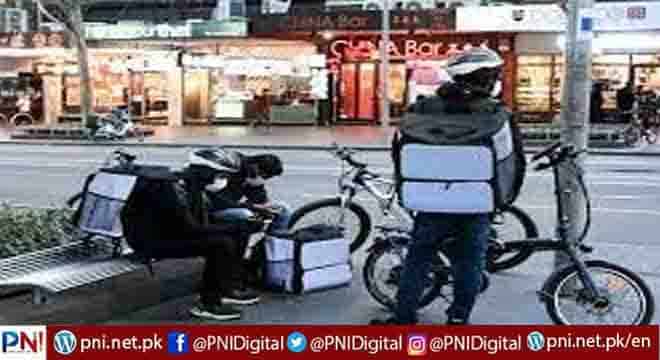SYDNEY, April 12 (Xinhua/APP): A new report has revealed that over 4 million Australian workers are currently in insecure work, highlighting the growing precarity faced by workers in the “gig economy”.
The report, published by the Australian Council of Trade Unions (ACTU) on Monday, showed that about one in three workers were in insecure jobs such as casual work, labor hire, gig economy workers, and those on rolling fixed-term contracts.
It noted that the number of insecure workers had grown by over 500,000 since 2013. A poll in the report revealed that three out of four of those in insecure work felt that their cost-of-living struggles had worsened in the last year.
ACTU Secretary Sally McManus said the report shows Australians are becoming more and more dissatisfied with the precarious nature of an unregulated job economy.
“Insecure work gives employers the upper hand in pay negotiations with more than 4 million workers. It’s a key part of the reason we have such low wage growth,” she said.
Australia’s unemployment rate has recovered since the onset of the pandemic, falling from a multi-decade high of 7.4 percent to a multi-decade low of 4 percent in February, according to the Australian Bureau of Statistics (ABS).
Despite this, the ACTU report outlined that more Australians were working multiple jobs and were in unstable work.
“It’s (insecure work) also the reason why a record number of people are now forced to work more than one job. It is a huge problem that a record number of people now need more than one of them to get by,” said McManus.
The report called for greater regulation of the gig economy in Australia and the closing of legal loopholes that allowed companies to take on employers as independent contractors to avoid providing full-time employment.
Angela Knox, associate professor of human resource management and industrial relations at the University of Sydney Business School, told Xinhua that the way Australia’s unemployment rate is calculated can fail to paint the full picture.
“To be defined as employed, you only need to be working one hour or more, during the specified period,” she said.
“Although it looks at an aggregate level as though unemployment is really low … What it is concealing is that there are large numbers of people who have very few hours of work, and it’s very insecure employment.”
Knox said insecure work negatively impacts all areas of people’s lives as without regular income, sick leave and carer’s leave it can be hard to maintain relationships, progress in one’s careers and save for important purchases like a house.
“It also means they have less bargaining power. So, they’re much less able to have the ability to increase their wages over time, or to shore up more permanent jobs and better opportunities.” Knox echoed McManus’ calls for greater regulation of employers, and proposed greater incentives for employers to provide secure, full-time jobs.
“I think we should be re-introducing quotas to awards and enterprise agreements, to protect, secure employment and to minimize insecure forms of employment.”
Follow the PNI Facebook page for the latest news and updates.








